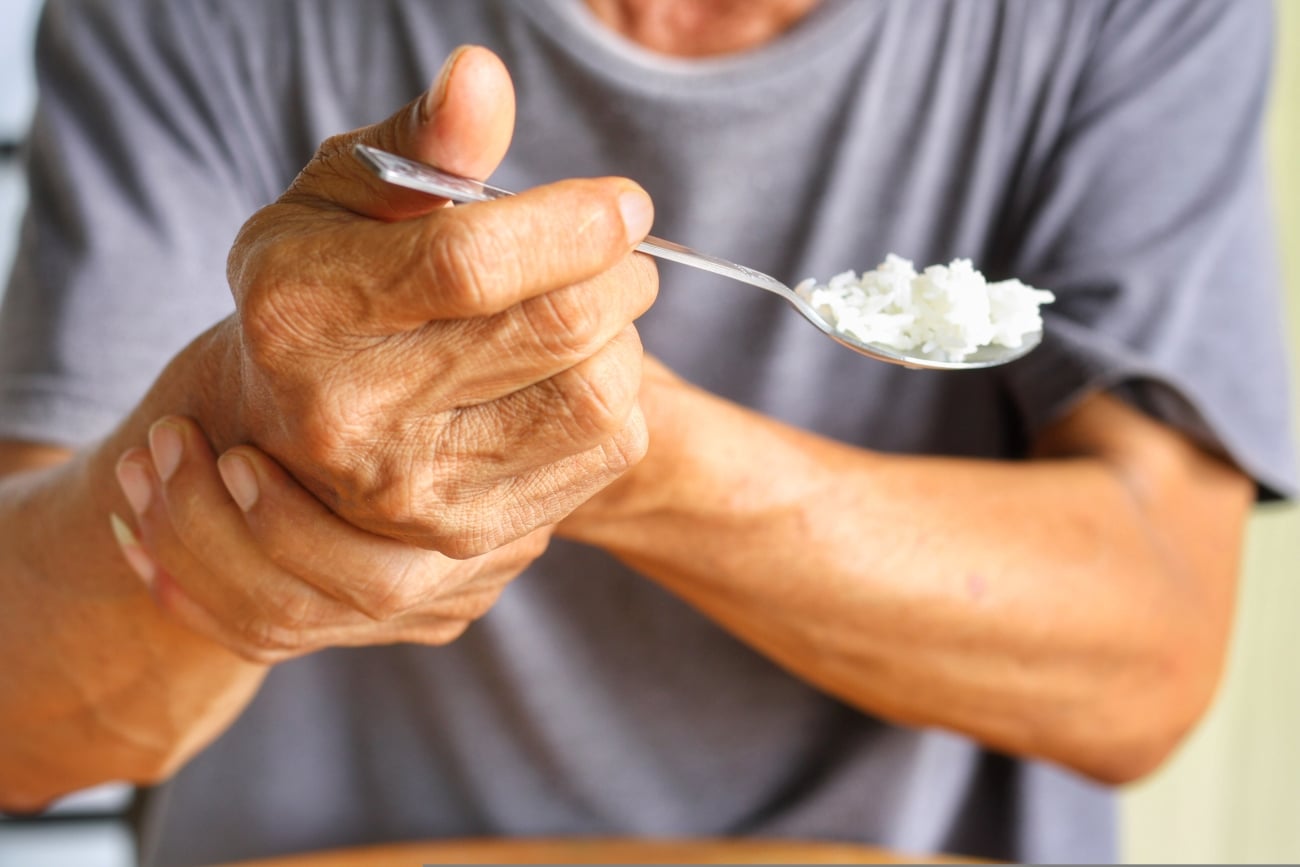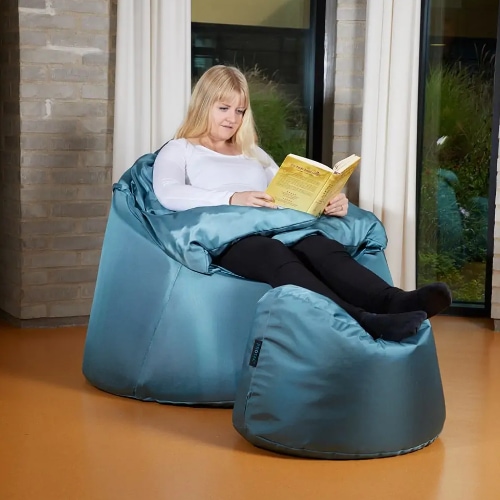Parkinson’s Disease: Home Adaptation Tips
Have A Question? Get In Touch
Parkinson’s UK states that around 153,000 people live with Parkinson’s disease in the UK and that it is the fastest-growing neurological condition in the world.
While this condition cannot be cured, several methods can be implemented by the individual and their carers/loved ones to improve their quality of life.
At Repose, we provide a wide range of recliner chairs and sensory products that help improve the quality of life for those with Parkinson’s.
Our diverse range of products can assist with the following:
- Mobility
- Anxiety
- Blood circulation
- Patient handling/movement
- Independence
- Comfort
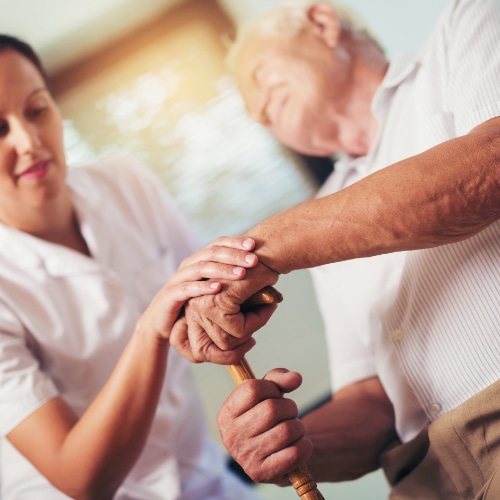
What is Parkinson’s Disease?
Parkinson’s Disease is a neurodegenerative disorder that affects the dopaminergic neurons in an area of the brain called substantia nigra.
The three most common forms of Parkinson's are:
- Idiopathic Parkinson’s
- Vascular parkinsonism
- Drug-induced parkinsonism
The cause of Parkinsonism is unknown but believed to be related to both genetic and environmental factors.
The symptoms of Parkinson’s can develop slowly over time and vary from person to person. Common symptoms of this condition are tremors, slowness, and limb stiffness.
A Complete List of Parkinson’s Symptoms
The main symptoms of Parkinson's disease are:
- Tremors - involuntary shaking of particular parts of the body
- Slow movement
- Stiff and inflexible muscles
Other physical and psychological symptoms:
- Depression
- Anxiety
- Balance problems (this may increase the chances of a fall)
- Loss of sense of smell (anosmia)
- Insomnia
- Issues with memory
How symptoms of Parkinson’s can impact mobility & create challenges with seating
Parkinson’s damages the part of the brain that controls movement. Therefore, a person living with this condition will move a lot, shake or their muscles will become stiff.
Choosing the right seating for an individual with this condition is vital for several reasons such as:
- Delays or difficulty in initiating movement can make it challenging to rise from a seated position.
- Tremors and involuntary movements increase the risk of sliding out of a chair or falling when transitioning from sitting to standing.
- Muscle stiffness and contractures may lead to abnormal posture, such as leaning to one side or a drooping head, raising the risk of developing fixed scoliosis or kyphosis.
- Pain and discomfort make it hard for the person to find a comfortable position.
Ways to Improve Quality of Life
Enhance comfort with our recliner chairs
We provide a broad range of bespoke riser recliner chairs alongside healthcare and porter chairs for both hospital and home environments.
Boston Porter Chair
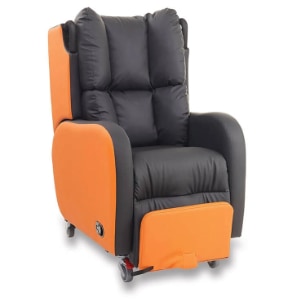
This chair provides high levels of comfort and excellent versatility, making it a great choice for those with Parkinson’s Disease.
The Boston Porter chair offers:
- Tilt in Space
- Backrest Recline
- Leg Rest Elevation
- A range of functions that enable different postural positions for high-level pressure management care.
Madison Rise Recliner Porter Chair
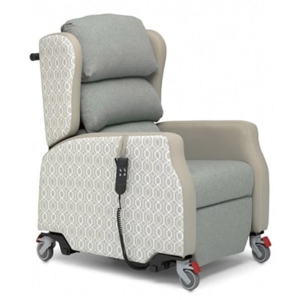
This chair has been designed for people who have deteriorating neurological conditions such as Parkinson’s Disease, Motor Neurone Disease, and end-of-life patients.
The Madison Rise Recliner Porter Chair can assist with the following:
- Multi-positioning of the legs to reduce oedema and fluid retention.
- Multi-positioning to help with swallowing, blood pressure and those with hypotension.
- Provides safe manoeuvring for those with chronic pain.
- Can be used with a mobile or overhead hoist to support carers who are lifting/handling people.
Haven Air Chair
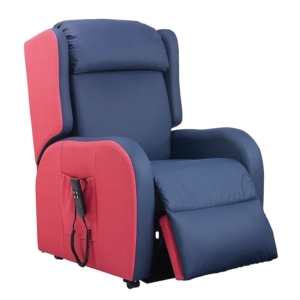
Like the Madison Rise Recliner chair, the Haven Air chair is designed for those with degenerative neurological conditions.
Haven Air provides unique air cushions situated in the backrest, seat cushion and leg rest, which help to distribute the weight of the individual and provide high levels of comfort.
The Haven Air Chair provides the following:
- Coolform gel in the armrests to help provide comfort and pressure relief on the armrest
- Chaise that helps prevent friction
- Dual or single tilt space motors as well as rise options to help the patient maintain their independence.
- Easy to move from one room to the other.
- Can be used with a mobile or overhead hoist to support safe moving and handling for carers.
Harlem Porter Chair
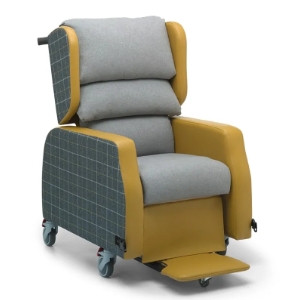
The Harlem Porter has been designed for users with life-limiting conditions and ataxic joints, making it ideal for someone with Parkinson's Disease.
The Harlem Poter Chair has the following:
- Independent backrest recline to meet the individual's postural needs.
- A ramped seat angle adjustment of up to 15 degrees to help reduce the risk of the client falling from the chair due to involuntary movements.
- Seat depth adjustment from 17" - 21" to accommodate a wide range of users.
- A sliding footplate to allow the individual to place their feet safely on the footplate while being easily transported, but it can also be hidden away to allow access with a hoist.
Explore the rest of our Healthcare Chairs.
Sensory Care Products
Sensory products are valuable pieces of equipment or furniture to have within the home of an individual with a chronic illness like Parkinson’s.
Parkinson’s Foundation reported that up to 40% of people living with Parkinson’s disease experiencing generalised anxiety disorder (GAD), obsessive-compulsive disorder (OCD), social avoidance, and anxiety attacks.
Sensory products have different applications but ultimately help alleviate anxiety whether it’s helping you focus, providing a sense of grounding or stimulating the senses through different sensory inputs.
Recommended sensory products for Parkinson’s:
- Protac Kneed Me (weighted knee blanket)
- Protac Sensit Chair
- Adult Protac Ball Blanket (calming weighted blanket)
Other Home Adaptations
There are lots of different ways to adapt each room in your home from your bedroom to the kitchen. Here are a few more suggestions for simple home adaptations:
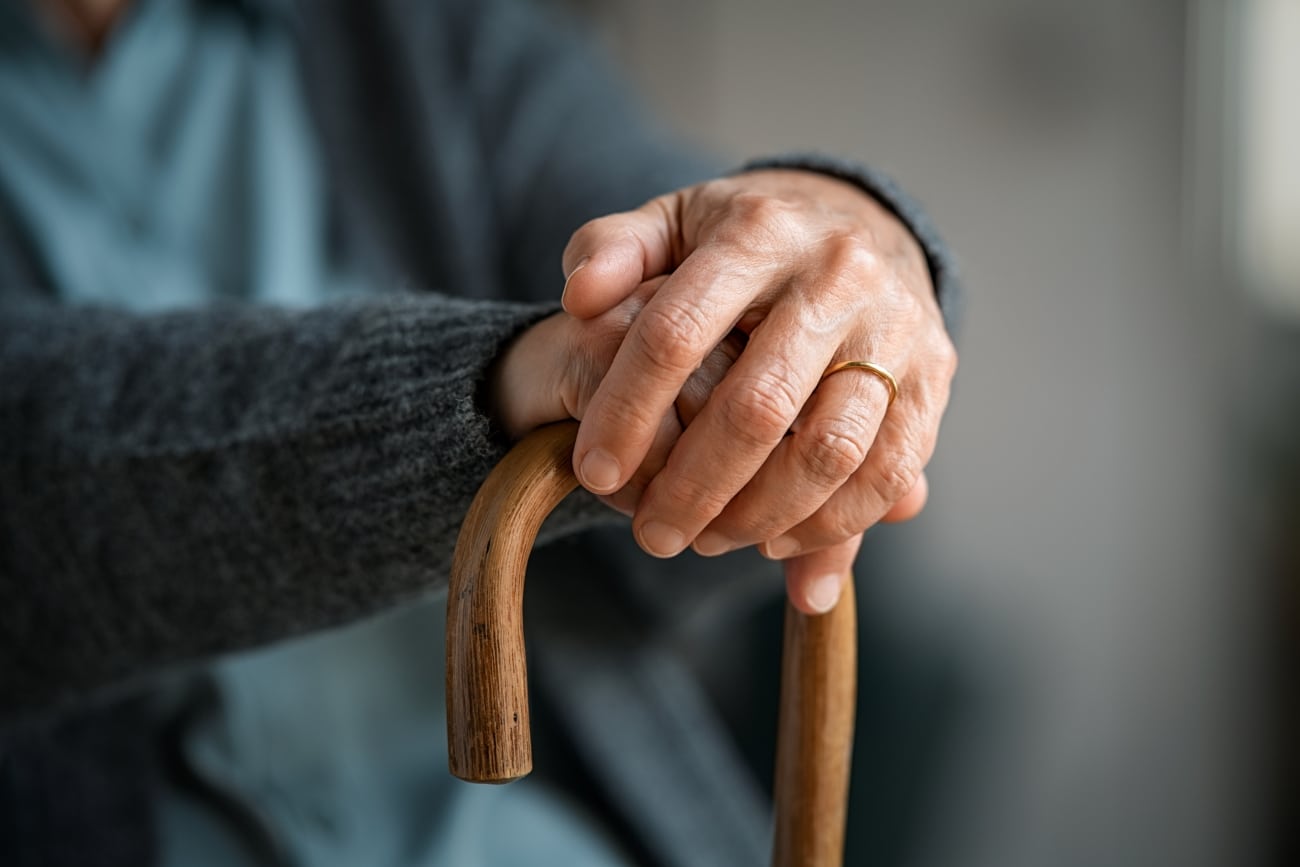
Walking aids
- Straight canes
- Walkers
- Wheelchairs or scooter
Bathroom aids
- Electric toothbrushes
- Grab bars/rails
- Shower chairs
- Slip mats
- Hands-free dryers
- Smart touch faucets
Bedroom aids
- Frames or bed cradles
- Bed rails
- Floor-to-ceiling grab bars
Kitchen aids
- Rocker knives (rounded blades)
- Travel cups with lids or straws
- Adaptive utensils with grips or weighted handles
Please note that this list of ideas are helpful suggestions. Always check with an occupational therapist or healthcare professional for advice regarding the best care solutions as each individual will vary in their needs.
FAQs for Home Adaptations for Parkinson's Disease
According to Parkinson’s Foundation, the following home modifications should be made to create a safer home environment:
- Stable chairs with armrests and adequate seat height to make sure standing up is easier. Riser recliner chairs are a good choice as they allow the individual to angle their body in a position that is most comfortable to them.
- Implement good lighting throughout your home to minimise dark or shadowy areas.
- Ensure there are wide walking paths for easy access for a walker or wheelchair.
